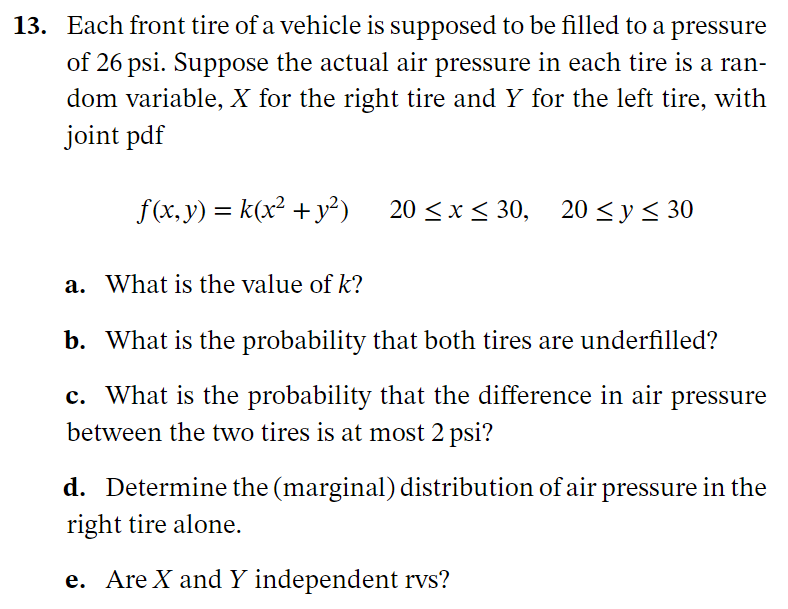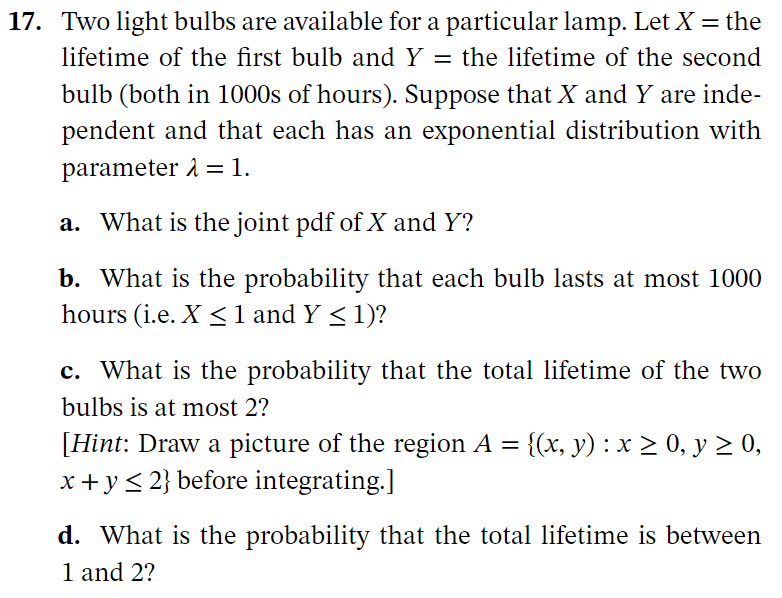7.13 (forgor k in c)
Proof
a.
b.
c.
d. We want which is:
for .
e. Likely not. Notice by symmetry that:
Which clearly isn't . So they are not independent.
☐
7.17
Proof
Here we have:
a. We just found that .
b.
c.
d. We want to find is a similar problem, except we remove the triangular region showed below:
Thus we have:
☐
7.33

See 7.13 above.
Proof
☐


